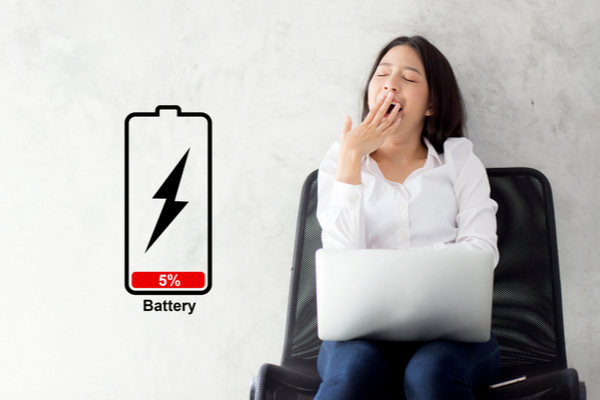World Mental Health Day is an international day dedicated to raising awareness and promoting mental health education taking place on 10 October.
What better time to reflect on mental health and its impact. It’s also an opportunity to renew our focus on how we can do better when it comes to supporting one another, as well as prioritising self-care.
Mental health can impact anyone, regardless of age, career, gender or any status. While every day can be a day to talk about and work on mental health, World Mental Health Day is a powerful reminder. As well as raising awareness, taking the time to acknowledge the impact mental health can have on us all helps to break the stigma. In turn, this means more people will understand that mental health issues can touch anyone and that reaching out for support is not only acceptable but commendable.

Managing mental health and wellbeing with self-care
Getting through is one thing, but thriving is quite another. While it can seem easier to simply push through and set your mental health aside, taking the time to look after your wellbeing while working and/or studying is crucial.
A little self-care can go a long way, especially when you know what you need to optimise your mental health. Many early childhood educators and learners have similar requirements when it comes to self-care that will enhance mental health and wellbeing. To support you in supporting yourself, we have some tips you might like to try:
Get organised
A clear space to work in or from can help to clear your mind too. This means a tidy workspace for learners, well-organised desk, locker and bag for workers and ideally a home environment that further supports that clear headspace.
Create a routine that works for you
This one is pretty personal, as what works for one person’s day won’t necessarily work for yours. Even if each day is different, try to create a weekly schedule that you can follow. A good routine should reduce stress, allowing for travel time and carving out space for things you love. Whether it’s a favourite show, exercise or catch ups with loved ones, your routine can help you fit in a solid balance of work and play.
Stay on top of your health
Eating healthily and getting some exercise in each day is pretty simple (especially with a good routine!). Healthy eating means getting all the nutrients you need to thrive. Go for fruit, veggies, protein and healthy carbohydrates, and keep exercise something you enjoy so you can look forward to it. Incidental exercise is great too — park the car a little further from the supermarket, walk to the train station or to get your morning coffee. Those little things really count!
Have boundaries in place
Create clear boundaries of when the work day begins and ends. Don’t check work emails after hours unless required, finish your day with a walk or your favourite snack. Put on a podcast or music you love on the way home to unwind. Your work day, or even your study time, should have a beginning and an end so you can relax.
Do things you love
Do you love a nice, hot bath? Picnics? Beach walks? Video games? Reading books in the sun? Say yes to activities that make you happy to ensure you are achieving a fulfilling balance in your life. Things that make you feel good are worth doing!
We can support you too
Whether you’re studying or working while studying or thinking about studying, we make sure you are supported to chase your goals.
Our Learner Success Team helps you to negotiate a range of obstacles that you might encounter while training. Whether you need support with English, literacy, numeracy, general study tips or even help with a resume, there is help available for you.
Not to mention our dedicated early childhood education trainers. They are available to be there for you every step of the way via phone, email, video chat or even in-person when permitted.
Self-care and support from those around you can be hugely beneficial for mental health, but there are other resources to reach out to as well. Your GP can help you with a mental health plan, or get in touch with one of the reputable mental health support organisations listed below.
Self-care is a must, but there is support out there when you need it too — and if you need Practical Outcomes, our team is here.
-
- Lifeline Australia – Provide access to 24 hour crisis support and suicide prevention services.
Website: www.lifeline.org.au Telephone: 13 11 14
- Lifeline Australia – Provide access to 24 hour crisis support and suicide prevention services.
-
- Beyond Blue – Provides information, and support for depression, anxiety and suicide prevention.
Website: www.beyondblue.org.au Telephone: 1300 224 636
- Beyond Blue – Provides information, and support for depression, anxiety and suicide prevention.
-
- Headspace – Provides young people with information and resources on mental health, physical health, work and study support, and alcohol and other drug services.
Website: www.headspace.org.au Telephone: 1800 650 890
- Headspace – Provides young people with information and resources on mental health, physical health, work and study support, and alcohol and other drug services.
-
- 1800 Respect – Provides 24 hour support to people impacted by sexual assault, domestic or family violence and abuse.
Website: www.1800respect.org.au Telephone: 1800 737 732
- 1800 Respect – Provides 24 hour support to people impacted by sexual assault, domestic or family violence and abuse.
-
- Mindspot – Provides free effective internet delivered psychological assessment and treatment for stress, anxiety, worry, depression, low mood, OCD and trauma (PTSD).
Website: www.mindspot.org.au Telephone: 1800 614 434
- Mindspot – Provides free effective internet delivered psychological assessment and treatment for stress, anxiety, worry, depression, low mood, OCD and trauma (PTSD).
-
- Kids Helpline – Provides private and confidential 24/7 phone and online counselling service for young people aged 5 to 25.
Website: www.kidshelpline.com.au Telephone: 1800 55 1800
- Kids Helpline – Provides private and confidential 24/7 phone and online counselling service for young people aged 5 to 25.
-
- National Debt Helpline – Helps people tackle their debt problems.
Website: www.ndh.org.au Telephone: 1800 007 007
- National Debt Helpline – Helps people tackle their debt problems.



